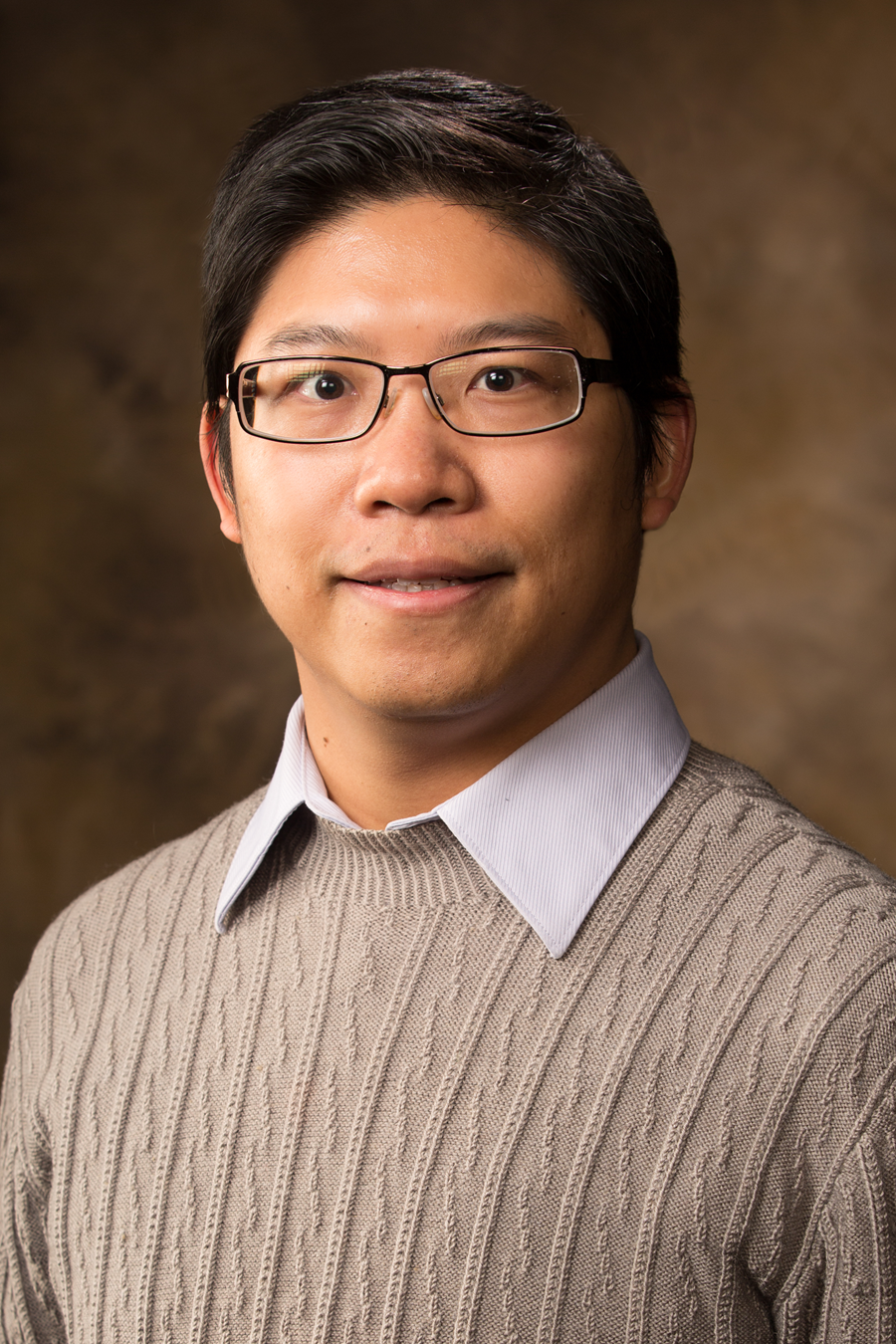A physicist at the University of Arkansas has defended the validity of the Stokes-Einstein equation, one of Albert Einstein’s most famous equations, as it relates to biology. The research will help scientists better understand antibiotic resistance and the mechanical properties of cancer cells.
Working with proteins in live bacteria, Yong Wang, assistant professor in the Fulbright College of Arts and Sciences, tested the 117-year-old equation, which provided evidence for the reality of atoms and molecules. He found that the famous equation remained valid for explaining how molecules move inside bacteria.
“Bacterial cytoplasm is not a simple soup,” Wang said. “Our study showed that it might be more like spaghetti with tomato sauce and meatballs.”
Cytoplasm is the crowded and complex material inside bacteria. It has high concentrations of large biological molecules, including millions of proteins, carbohydrates and salts, and all kinds of polymers and filaments, such as DNA and RNA.
Wang found that although Einstein’s equation appeared to be off for proteins’ motion within live bacteria, it remained valid by taking into account the entangled polymers and filaments inside bacteria.
The so-called Einstein relation – also called the Stokes-Einstein equation – is one of Einstein’s major research accomplishments in his “year of miracles,” 1905. Explaining the mobility of particles through liquid, the equation has been characterized as a stochastic model for Brownian motion, meaning particles move around randomly because of collisions with surrounding molecules. Most importantly, the theory provided early empirical evidence for the reality of atoms and molecules.
However, over the past two decades, scientists have challenged the theory’s validity as it applies to what’s inside live cells and bacteria. Wang’s study adds to this body of knowledge, helping resolve the current controversy.
More importantly, it provides a foundation for assessing the mechanical properties of cells and bacteria based on the Einstein relation. This should help scientists understand antibiotic resistance of certain microorganisms and the mechanical properties of cancer cells, which differ from the mechanical properties of normal, healthy cells.
On this study, which was published in Physical Review Letters, Wang worked with Lin Oliver, professor and chair of the Department of Physics, and Asmaa Sadoon, doctoral student in the microelectronics-photonics program.
About the University of Arkansas: As Arkansas' flagship institution, the U of A provides an internationally competitive education in more than 200 academic programs. Founded in 1871, the U of A contributes more than $2.2 billion to Arkansas’ economy through the teaching of new knowledge and skills, entrepreneurship and job development, discovery through research and creative activity while also providing training for professional disciplines. The Carnegie Foundation classifies the U of A among the few U.S. colleges and universities with the highest level of research activity. U.S. News & World Report ranks the U of A among the top public universities in the nation. See how the U of A works to build a better world at Arkansas Research News.
Contacts
Yong Wang, assistant professor
Physics
479-575-4313, yongwang@uark.edu
Matt McGowan, assistant director of research communications
University Relations
479-575-4246, dmcgowa@uark.edu
